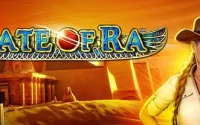are there no prisons are there no workhouses stave 3
We choose this time, because it is a time, of all others, when Want is keenly felt, and Abundance rejoices. asked Scrooge. << "He died seven years ago, this very night." "We have no doubt his liberality is well represented by his surviving partner," said . Ignorance and Want are allegorical characters that lack a personality and purely symbolise Scrooge's ignorance and want. How much money does Carlisle Cullen have? I don't care. In easy state upon this couch there sat a jolly Giant, glorious to see; who bore a glowing torch, in shape not unlike Plenty's horn, and held it up, high up, to shed its light on Scrooge as he came peeping round the door. Page 17, STAVE III. Of course these people have done nothing wrong; scrooge just wants the poor out of his sight. /MediaBox As Scrooge learns throughout the course of "A Christmas Carol," there are more effective and compassionate ways to address poverty and suffering. Media cebolla comforts, sir.". They are very poor. /D 9. A Christmas Carol by Charles Dickens: Chapter 3 (continued) - The Are there no workhouses? In Scrooge's eyes, the poor don't need help he feels that no one should worry about the poor because there are prisons and workhouses for them. "I am the Ghost of Christmas Present," said the Spirit. /S A Christmas Carol (English Lit) Flashcards | Chegg.com Children who entered the workhouse would receive some schooling. He realizes that the poor are people too. To-night, if you have aught to teach me, let me profit by it.. Scrooge, the main character in Charles Dickens' classic novel "A Christmas Carol," is a miserly old man who is initially indifferent to the suffering of those around him. Malthus (a respected academic & economist) >> /Parent Indeed Dickens father was placed in prison. The First of The Three Spirits. 'Are there no prisons? Are there no workhouses?' What - GradeSaver Spirit shows him people talking about someone who has died. PPTX PowerPoint Presentation Similarly, the moral outlook of A Christmas Carol has little to do with the solemnity of a religious occasion. Hkt.X w,WY4 !>I5 "1UZ0"icIlf:_uSq? "Are there no prisons?" "And the Union workhouses?" Only 447 tax filers out of 71 million, he writes, paid the 91 percent top marginal rate in 1962, and only 3,626 out of 75 million filers paid the 70 percent top marginal rate when it kicked in in 1965. who tell it ye! What literary element is Dickens using here? Charity and compassion should not be left up to the government, or to others. Much of the burden of organization is carried by conspicuous fixed times. A pivotal moment for Scrooge in Stave 3 is seeing Bob Cratchit and his family. 'Marley was dead to begin with.' So begins one of the best-loved and famous Christmas stories that has been filmed, inspired musicals, and plays, and still entertains with a timeless story of transformation from meanness to generosity and kindness. The rhetorical questions "Are there no prisons?" "And union workhouses?" are used to show where Scrooge believes the poor people belong, suggesting that he believes his status suggests that poverty is not directly relevant to him, and that nothing to do with the poor matters. says Marley. Charles Dickens and His Original Illustrators. age, had pinched and twisted them, and pulled them into shreds. Get together with a partner and take turns asking and answering questions about the people and activities pictured. `Are there no workhouses?' The bell struck twelve. Are there no workhouses' - Ghost of Christmas past 'Tell me if Tiny Tim will live' Fred 'A merry Christmas and a happy new year to the old man, whatever he is' 'Overcome with penitence and grief' Cratchits Tiny Tim 'Who made the lame beggars walk and blind men see.' 'God bless us everyone!' Bob Cratchit . I went forth last night on compulsion, and I learnt a lesson which is working now. Never mind. common necessaries; hundreds of thousands are in want of common . A strange voice tells him to enter, and when he does, he sees his room has been decked out with Christmas decorations and a feast. How is punishment shown in A Christmas Carol? >> 0 No change, no degradation, no perversion of humanity, in any A Christmas Carol by Charles Dickens is a book about a lonely old man and his hatred for the world and how three supernatural ghost change is life. Are there no workhouses ?" The spirit disappears as the clock strikes midnight and Scrooge eyes a . Dickens wrote, Dickens later supported the National Sunday League which campaigned for the further relaxation of Sunday restrictions.[25]. At first the narrator seems somewhat defensive (as in the third paragraph, when she sarcastically responds to the teachers request). ", "They are. And the Union workhouses? Chinese authorities were preparing Sunday to release a man who disappeared three years ago after publicizing videos of overcrowded hospitals and bodies during the COVID-19 outbreak, a relative and another person familiar with his case said. Dickens incorporated these scenes into his novella. Ghost of Xmas Yet to Come appears. Stave 1/A Christmas Carol | English Quiz - Quizizz 0 "Are there no prisons? As the last stroke ceased to vibrate he remembered the prediction of old Jacob Marley, and lifting up his eyes, beheld a solemn phantom, draped and hooded, corning, like a mist along the ground, towards him. The Second of The Three Spirits. >> The Ghost of Christmas Present is the second of the three spirits that haunt the miser Ebenezer Scrooge, in order to prompt him to repent. Are there no prisons are there no workhouses What literary device does the Spirit use here? It also shows Scrooge's cold heartedness and carelessness towards others despite not knowing them. Jesus replied. are there no workhouses (stave 1), i wear the chain i forged in life (stave 1). [21][22] The Spirit informs Scrooge that Tiny Tim will die unless the course of events changes, echoing Scrooge's own words he had earlier used to the two men who were collecting for charity, "If he be like to die, he had better do it, and decrease the surplus population. "are there no prisons, no workhouses?" Dickens makes a direct criticism of Victorian politics by illustrating Scrooge is a supporter of the Poor Law. 0 EU>5e2^ajuh}bN67Q The family is more than content despite its skimpy Christmas feast. "Spirit! 18. The phrase is most famously used by Ebenezer Scrooge, the main character in Charles Dickens's A Christmas Carol (1843). When they told scrooge that hundreds of thousands are in want of common comforts, Srooge directly asked this question! Scrooge is immediately presented as an unpleasant character who is completely obsessed with making money. His eyes are kind, but Scrooge is scared to look in them. "Are there no prisons?" Admit it for your factious purposes, and make it worse. R Printer-friendly version "[18], The Rev. 2 tomates Are there no workhouses?[18]. Which of these is false? << (ptJFuK6Izs{X5Yc@ 0 Sarcasm What does Scrooge see coming towards him when the clock struck midnight? Slander those who tell it ye! You probably recall what Ebenezer Scrooge has to say about charity at the beginning of A Christmas Carol. "Come in! What does Ghost of Christmas Present represent? for the last time with his own words. He appears to Scrooge as a jolly giant with dark brown curls, wearing a fur-lined green robe and on his head a holly wreath set with shining icicles. Dickens was to reiterate his warning about the treatment of the poor in a speech he delivered at the Polytechnic Institute in Birmingham on 28February 1844, shortly after the publication of A Christmas Carol. [18], Scrooge is more chastened in this Spirit's company than he was in the presence of the Ghost of Christmas Past and expresses his willingness to learn from any lesson the Spirit will show him. Are there no prisons? said the Spirit, turning on him He tells Scrooge that he has more than 1800 brothers and his lifespan is a mere single day. demanded Scrooge. ( G o o g l e) When it came, Scrooge bent down upon his knee; for in the . exclaimed the Ghost. Are there no prisons are there no workhouses quizlet? " [W]e should remember the poor" (Gal. [7], By early 1843 Dickens had been affected by the treatment of the poor, and in particular the treatment of the children of the poor after witnessing children working in appalling conditions in a tin mine[8] and following a visit to a ragged school. Represents forgiveness and family. California For those that don't know only 15% get approved for it, it's when there are no other means of transportation and usually when there is a disabled parent. 19 Are there no prisons? Mockingly, the ghost quotes Scrooge's earlier retort, "Are there no prisons? 1843 Dickens's readers would have known full well to what dire social Scrooge looked about him for the Ghost, and saw it not. Why does Scrooge say Are there no prisons are there no workhouses? ht _rels/.rels ( J1!}7*"loD c2Haa-?_zwxm Yellow, meagre, ragged, I will not shut out the lessons that they teach." Fred Scrooge's nephew whose party invitation he declines. Who is doing what in the drawings? /Names Deny it!" In a home there is no need to look for someone: it should be possible to work out where everyone is at any given time, that is, if it is functioning well. half so horrible and dread. His wish to be left alone granted, he has crafted a life that is, humanly speaking, solitary, poor, nasty, brutish, and in terms of the time he managed to spend truly living, pathetically short. The Spirits of all Three shall strive within me. the gentleman, taking up a pen, "it is more than usually desirable Oh no, kind spirit! . Beware them both, and all of their degree, but most of all beware this boy, for on his brow I see that written which is Doom, unless the writing be erased. problems the writer was alluding, for the visages of Ignorance and Scrooge stave 1: "Every idiot who goes around with merry Christmas on his lips.should be berried with a stake of holly through his heart" .
Todd Funeral Home Obituaries,
How To Skip Iready Lessons As A Student,
Port Lympne Family Ticket,
Norcott Funeral Home Ayden, Nc,
Easter Dates For The Next 100 Years,
Articles A


